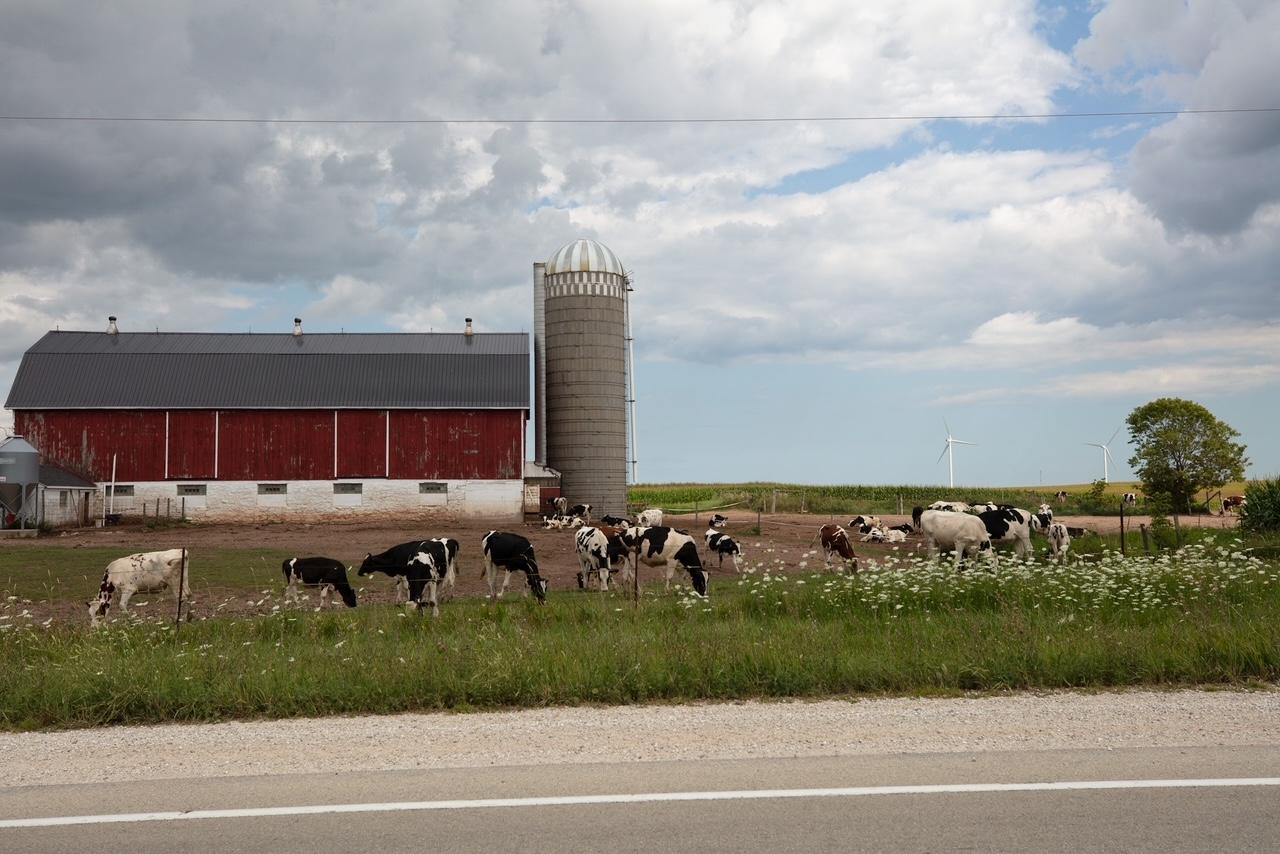The Animal Welfare Program at the University of Wisconsin seeks to improve the lives of farm animals at low costs to farmers — their research ranges from alleviating pain during invasive procedures to calf suckling practices.
Animal welfare involves the holistic wellbeing of animals, including their physical and emotional states. Students in the Animal Welfare Program learn how to measure animal behavior under different environmental factors and use their assessments to create new procedures and technologies that improve the quality of life for the farm animals, according to the Department of Dairy Science website.
“Giving cows a voice through science” is the motto of Jennifer Van Os’ lab at the University of Wisconsin. Van Os belongs to the Animal Welfare Program, which is housed in the Department of Animal and Dairy Science. She studies ventilation in cow barns to understand how low-cost technologies can meet cows’ behavioral needs.
Babcock Hall Dairy Plant celebrates new facility renovations
Kim Reuscher is a Ph.D. candidate in the Van Os Lab. Her research focuses on thermal stress in animals, which regularly depends on ventilation in barns. Ventilation may seem trivial, but it significantly impacts the wellbeing of cows. According to a Wisconsin Life article, cows are sensitive to temperature changes and require proper airflow to remain comfortable.
Providing cows with an option between ventilated barns and open pastures is also key to animal welfare. Van Os said research shows that cows will choose both barns and pastures, so providing them with options is vital to animal welfare. This choice ensures they are comfortable in whichever space they prefer.
“Behavior of animals indicates their state of mind,” said Reuscher. “They’re the first things that change in an animal when they experience environmental stress.”
When a cow is stressed by heat, its respiration and body temperature increases, which decreases the cow’s milk production. The cow will also spend much of its time standing, which causes long-term ligament problems, Reuscher said.
NASA astronomer speaks on James Webb Telescope, successes since launch
Reuscher said she measures these physiological changes, like body temperature and standing behaviors, to determine cattle comfort and address the welfare concerns of poor ventilation.
Reuscher’s studies have taken place across 12 commercial dairy farms in the state and one of the university’s dairy facilities in Arlington, Wisconsin. Reuscher said some farms have taken her recommendations and made improvements in their barn ventilation systems.
But ventilation isn’t the only welfare concern that the university’s Animal Welfare Program is interested in. Assistant professor Sarah Adcock currently studies both cattle and sheep. Her research aims to understand painful routine farming procedures and develop pain mitigating techniques for farmed animals.
For example, Adcock analyzes disbudding procedures, which painfully remove the growing horns of young calves. According to a Dairy Herd Management article, normal disbudding procedures involve either acidic dissolution or cutting horns, both of which involve pain regardless of when they are performed on young animals.
UW researchers awarded grant to study cure for devastating bat disease
Adcock said she plans to develop an industry standard for pain mitigation after disbudding procedures through her research and has even created online videos to instruct farmers on her procedures.
Research for UW’s Animal Welfare Program is done in the field on Wisconsin farms. Ph.D. student in Adcock’s lab Jocelyn Woods said this aspect of the program is what drew her to pursue her degree two years ago.
Woods studies tail docking in sheep. She explains that tail docking is the common husbandry practice of removing lamb’s tails after birth. The procedure is believed to mitigate pathogen and parasitic infections in sheep that could sicken the animal and ruin its wool. Woods said she wants to know if tail docking actually keeps sheep clean and safe, and if it is worth the painful procedure.
Woods conducts her research on one of the university’s research farms, where she studies a single herd of sheep over a period of two years. The controlled setting allows her to conduct research on the effect of tail docking on sheep social dynamics, disease risk, breeding behavior and chronic pain assessment.
Animal welfare is a growing academic field, and new welfare methods are already being implemented on farms across the state, Reuscher said. To communicate and engage the public in the rising field of animal welfare, Woods operates an account as the @AnimalWelfarist on Twitter.
“A happy cow produces more milk,” said Reuscher. “Implementing better welfare practices can increase this.”
Welfare practices will not always have an apparent economic benefit. Reuscher said this is where the ethical and moral component of welfare comes into play. Producers have a responsibility to manage their animals, and consumers have power over what products — and farms — they support.
To ease financial constraints on producers, the Animal Welfare Program is dedicated to designing low-cost welfare solutions. Woods said that these efficient, low-cost welfare practices will become more commonplace in the future to increase the comfort of animals and the productivity of farms.
“We owe it to the animals to treat them as well as we can. Most welfare changes can be small [financially] but make huge impacts on animals,” Woods said.


















